Evidently he does have a passion for the F&B industry: This year alone saw the opening of Cloudstreet under his Unlisted Collection group of boutique hotels and culinary concepts; the launch of Zen, a New Nordic–Japanese fine-dining experience created in collaboration with Swedish chef Bjorn Frantzén, in the Bukit Pasoh space that used to house Restaurant Andre; and the second outlet of yakitori spot Bincho, at Min Jiang on Dempsey Road.
“Restaurants are terrible things to run, terrible investments,” says Mr. Loh Lik Peng. “So if you don’t have passion for them, don’t do it — there are far easier ways to make money.”
Cloudstreet opened for business this July and has earned glowing reviews for its highly personal cuisine that blends Sri Lankan and Australian influences. Cloudstreet is “very much Rishi’s vehicle ... Rishi’s vision,” Mr. Loh says, referring to chef Rishi Naleendra, who helmed the former Cheek by Jowl, now reconceptualized as casual eatery Cheek Bistro. Besides Naleendra, virtuosos under the Unlisted umbrella include Ivan Brehm of Nouri and Dave Pynt of Burnt Ends.
“It's not a conventional cuisine, it’s hard to categorize, but it’s something that I felt was interesting and tasty, and technically, he was very, very good, and original,” Mr. Loh recalls his first impression of Naleendra. “It's not easy to find very original chefs nowadays. If you look at people like him, Ivan Brehm and Dave Pynt, they cook original cuisine and you can't find anyone else doing what they're doing.”
Would he say he has a knack for recognizing such talent among the crowd? “I don't know, some people say I do. I guess I never really think of it that way, though,” he replies. “For me it’s often a mix of really liking the cuisine and getting on very well with them, so it’s important to have the right chemistry with the chefs.”
- THE IDEAL MIX
- THE QUEST FOR INNOVATION
- THEN & NOW
The Ideal Mix
From a business perspective, Unlisted Collection’s portfolio comprises restaurants in Singapore (the group let go of the New Majestic Hotel in 2017 and sold Wanderlust Hotel in 2018), while design-forward hotels in historical buildings form the bulk of its overseas operations, which span London, Sydney, Shanghai, Dublin and County Kerry in southwest Ireland. One reason for this distinction is the cost of operating hotels of a smaller scale in Singapore, making it a venture that’s tougher to sustain.
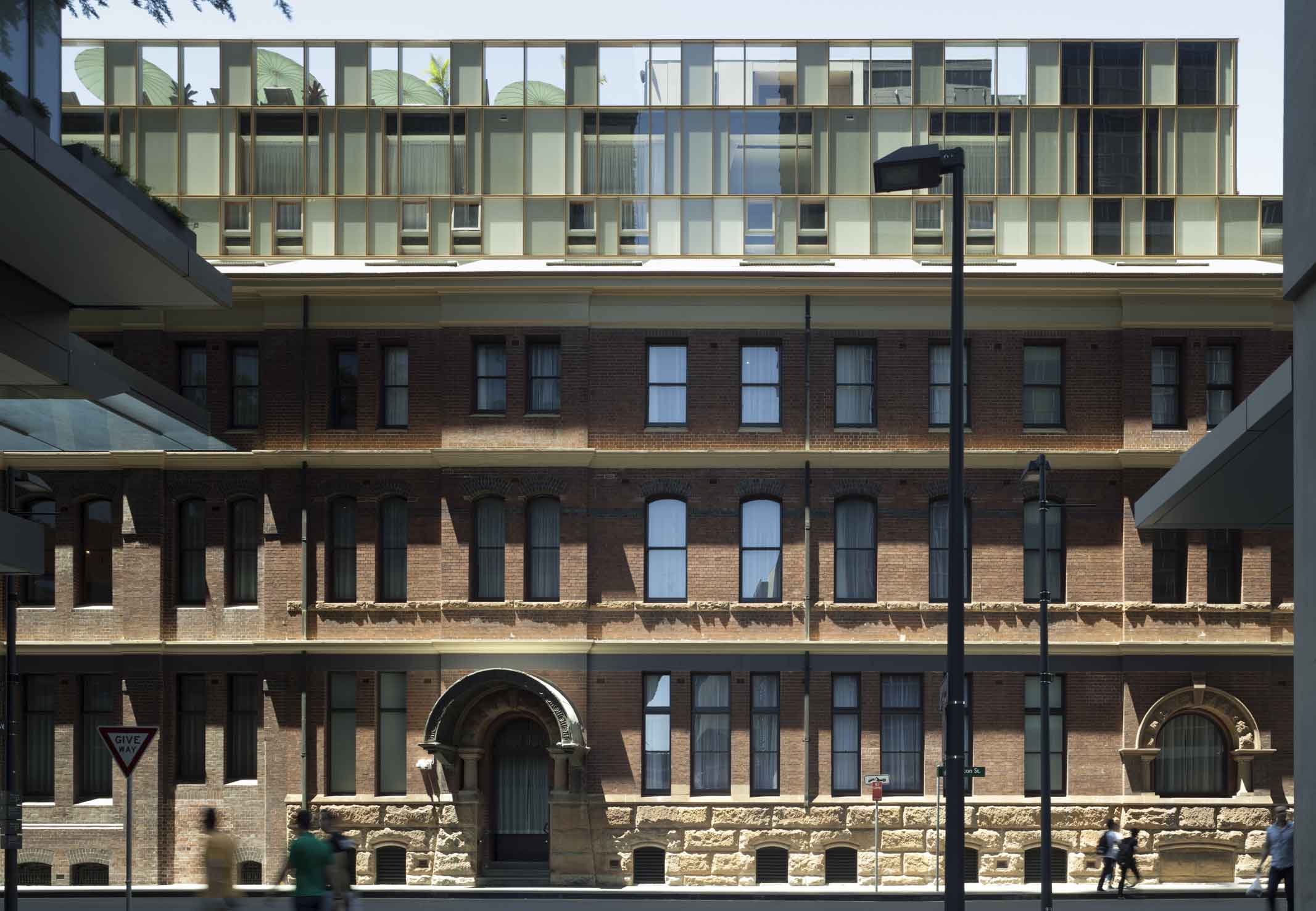 The Old Clare Hotel, Sydney. Image courtesy of Unlisted Collection.
The Old Clare Hotel, Sydney. Image courtesy of Unlisted Collection.
In addition to cost, restaurants and hotels present different types of investment horizons: While a restaurant may take mere months to move from concept to launch, hotels may demand four to five years of work before welcoming their first visitors, making restaurants the nimbler of the two businesses. “A restaurant has a quicker turnaround, and it's so much more fun; a hotel is quite a serious undertaking,” Mr. Loh says. “There's no easy way of developing a hotel, and it's always expensive and always takes a long time.”
In spite of the hard work that goes into realizing a project, it’s precisely this process that Mr. Loh enjoys: For hotels, it starts with discovering and falling in love with the character of a building or site, and for restaurants, it’s coming across a chef who’s doing something radically different that he’s excited about bringing to the public.
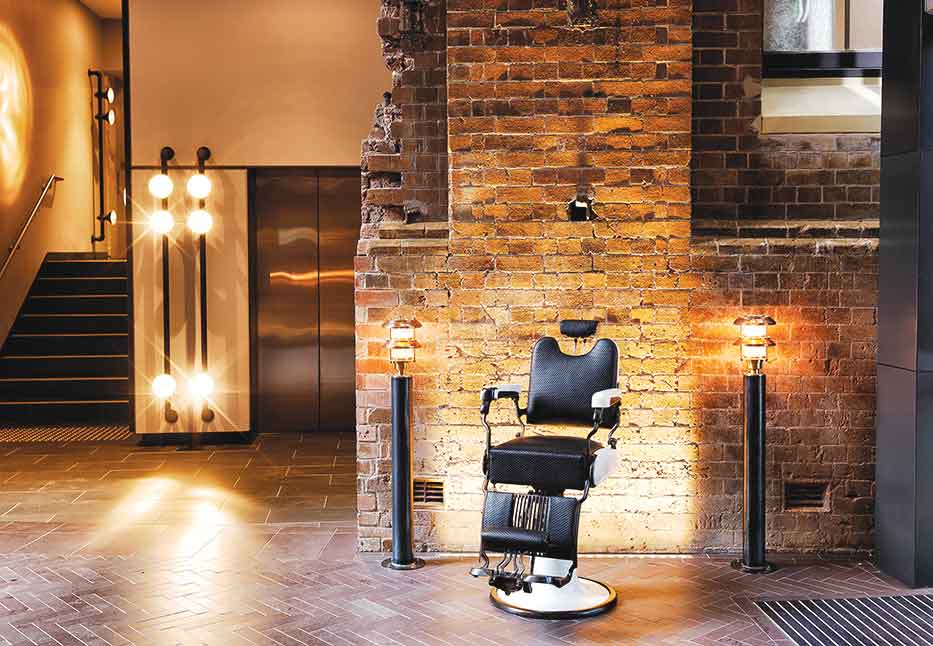 The Old Clare Hotel, Sydney. Image courtesy of Unlisted Collection.
The Old Clare Hotel, Sydney. Image courtesy of Unlisted Collection.
“I just love building hotels. I love restoring old buildings, I love doing those types of projects, because they are transformative,” he explains. “I love architecture. If you look at something like The Old Clare (an Unlisted Collection hotel in Sydney), it used to be a brewery. It wasn't built to be beautiful, it was built to be functional, so it's quite Brutalist. But in that Brutalist form, there's also a lot of beauty in the bricks and steel, and everything was built extra large, extra strong. ... I look for those types of special elements.”
Mr. Loh’s interest in bringing together diverse elements to create a well-rounded experience. “I think consumer tastes throughout the world are the same: People love beautiful surroundings, great service, great food, and that’s really what it takes to succeed. And for hotels it’s the same, you need great service and great buildings, and a special element of design so that the interiors don’t look like they come from [an international hotel chain],” he says.
“That's the thing that we at Unlisted Collection look out for, those special elements, that sort of X factor to our projects, whether it's restaurants or hotels — it’s really what the more sophisticated consumer expects nowadays.”
But not all Unlisted Collection projects work out perfectly. One Leicester Street, a hotel and restaurant in a townhouse just off Leicester Square in the buzzy West End of London, didn’t fare as well as the Town Hall Hotel, located in Bethnal Green, an East End district that once held a less than savory reputation. The former location seemed to have everything going for it — foot traffic, energy, tourist draws — but their fortunes were the opposite of what had been expected.
“I've learned is that you should approach every project with a sense of fear and insecurity, because then you do your best work,” Mr. Loh muses. “Every single time I thought, ‘Well, this is going to be easy, I've got it figured out,’ usually you haven't and then you fall flat on your face.
“Maybe you learn more from your projects that don't work.”
- THE IDEAL MIX
- THE QUEST FOR INNOVATION
- THEN & NOW
The Quest for Innovation
Take a quick scroll through @pengloh on Instagram and Mr. Loh’s ardor for good food becomes apparent: His feed is a dizzying collection of tantalizing eats that run the gamut from a roadside nasi padang stall to multi-Michelin-starred fine-dining establishments. Calling Singapore’s food scene one of the best in the world, he says: “We have a huge breadth of cuisines...you can eat virtually anything you want — you can dine like a king for $5 a lunch at a hawker centre, all the way to spending $500 just for one meal.”
But even with that much variety, he still believes there’s room for growth and opportunities in F&B. “I agree that there are a lot of restaurants in Singapore, but I think if you find your own niche, you do something unique,” he says. “There's no such market as saturated, right? It's only saturated if you're doing what everyone else is doing.”
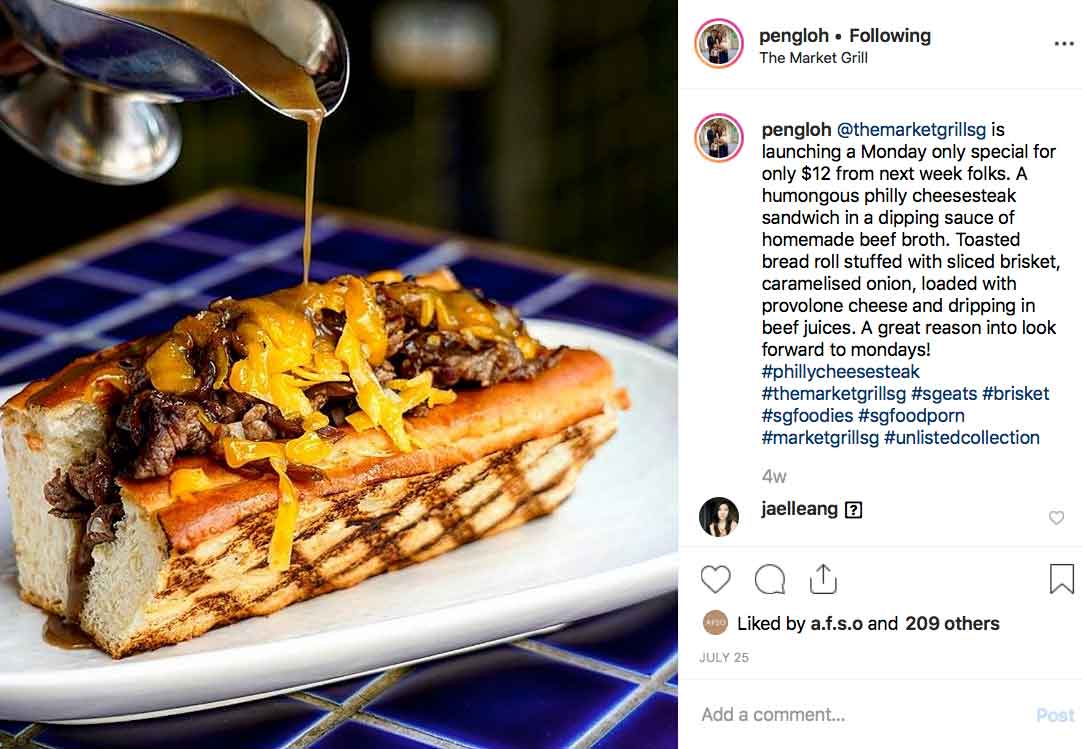
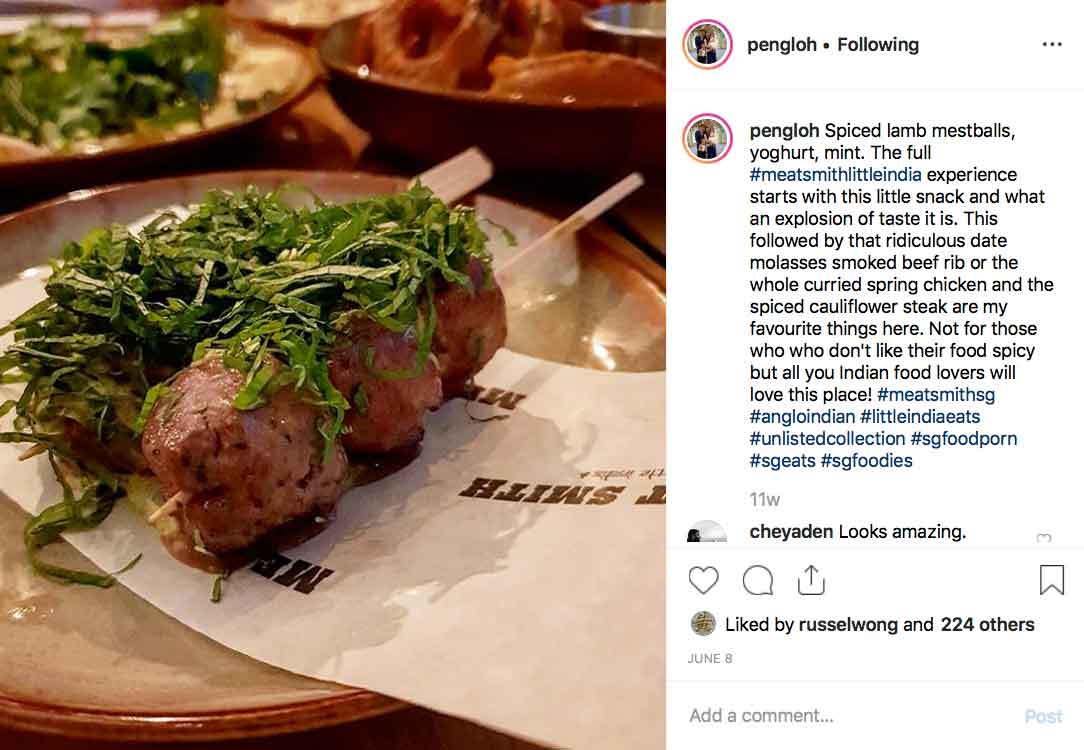 via Mr. Loh's Instagram (@pengloh)
via Mr. Loh's Instagram (@pengloh)
For Unlisted Collection’s restaurants, one feature common to a number of them is the tendency to exist as unique concepts instead of multiple outlets of the same concept. “We tend to do standalone, one-off projects, and those are targeted at a certain type of clientele,” Mr. Loh says. “I’d love to be able to [open a restaurant across five or six locations], actually — it makes life a lot easier and it’s less risky.”
“We have tried to incubate concepts — The Market Grill and Meat Smith, for example, were designed to be scaled — but the issue is we don’t have the discipline to do it, so when we find a new site, we start a new concept. ...I'm always saying, ‘Oh, let's start a new project,’ even though I know I shouldn't, I should just repeat something that's been successful.”
On the hotels front, Mr. Loh sees increasingly tech-savvy travelers and the growth of the Chinese market as two phenomena to anticipate. Consumers, especially younger ones, feel at home with conveniences such as automated check-in and fast WiFi for streaming of personal entertainment, he says, and “those types of technologies are changing regardless of whether hotels are ready for it, so you need to be really on top of it.”
And remarking that the largest source market for visitors to Singapore and beyond are Chinese, Mr. Loh adds, “I read a statistic that only something like 150 million Chinese have passports at the moment; they’re only at the cusp of their growth trajectory. So they're going to be the biggest travelers in the next decades. ...By sheer size of their population, they're going to be the future of travel, so you either get with a program or you disappear.”
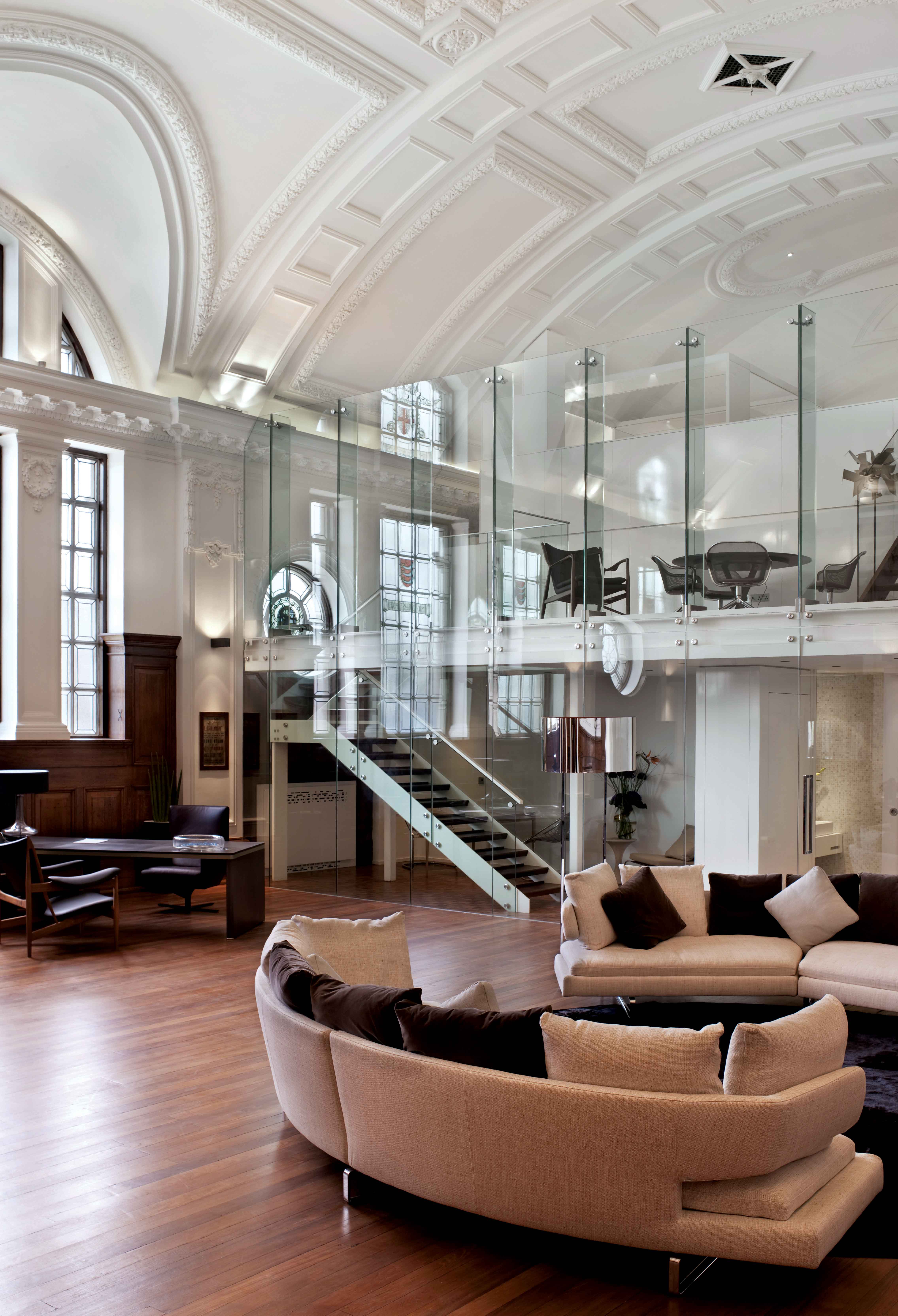 The Town Hall Hotel, London. Image courtesy of Unlisted Collection.
The Town Hall Hotel, London. Image courtesy of Unlisted Collection.
Chinese travelers don’t constitute a large source market for Unlisted Collection hotels just yet: “We are more design- and lifestyle-led, so we are a niche that maybe the Chinese haven’t started to look at yet,” Mr. Loh says. “But I guarantee you they’re coming, and we are preparing for it.”
The group has rolled out Alipay in its hotels, and in the future it may explore outfitting its service apartments with amenities such as woks and rice cookers, to even reconfiguring room layouts to accommodate multi-family or multi-generational groups of travelers.
Hotels are also facing competition from the growth of marketplaces such as Airbnb, and had endeavored to differentiate themselves by the services they offered, in addition to providing quality physical spaces. “What hotels offer has to become increasingly sophisticated in order to beat the Airbnbs of this world,” Mr. Loh says.
“For things such as room service, breakfast and dining options, hotels used to be good at that, and that was what distinguished them. But now you have delivery platforms. So if you stay in an Airbnb and order UberEats in New York, you may not miss room service that much. So what do hotels do from there? You're going to do more bespoke things like special cocktails to welcome guests, maybe do room service and change towels at unusual times, or provide more services such as swimming pools, gyms, multiple restaurants. That's how you're going to compete.”
It’s a similar challenge when it comes to restaurants: Ghost kitchens, delivery-only food businesses with no retail space, have experienced remarkable growth and are set to become disruptors of traditional restaurants. “Restaurants have to react by becoming much more bespoke and personalized, so that they become places where it's not just about the food, it’s about the social experience, having a beautiful space, having someone who serves you and talks you through the food and makes it a much more personalized, bespoke experience,” Mr. Loh says.
“The days when you could just have good food and be successful as a restaurant are gone, apart from zi char and hawkers. But restaurants like us, every day we have to step up the levels of service and personalization. ... If you are happy enough to order your food purely on food delivery platforms, then you don't need restaurants.”
- THE IDEAL MIX
- THE QUEST FOR INNOVATION
- THEN & NOW
Then & Now
Mr. Loh never imagined he would get into the hospitality business. He had spent about three years practicing law when, while reviewing mortgage documents around the tail end of the Asian financial crisis, he chanced upon the building on Keong Saik Road that he would go on to refurbish and launch as Hotel 1929, his first property.
“I just saw it as a cool building in a seedy neighborhood, and it was cheap, and I did Hotel 1929 as a hotel that I personally would have liked to stay in,” he recounts. “I didn't do any market research, I had no hotel experience, I didn't really know what the people wanted. So I just thought it was a short project, and I'd go back to practice law. Not to say I did it for a laugh, but I did it without any serious intention of being a hotelier.”
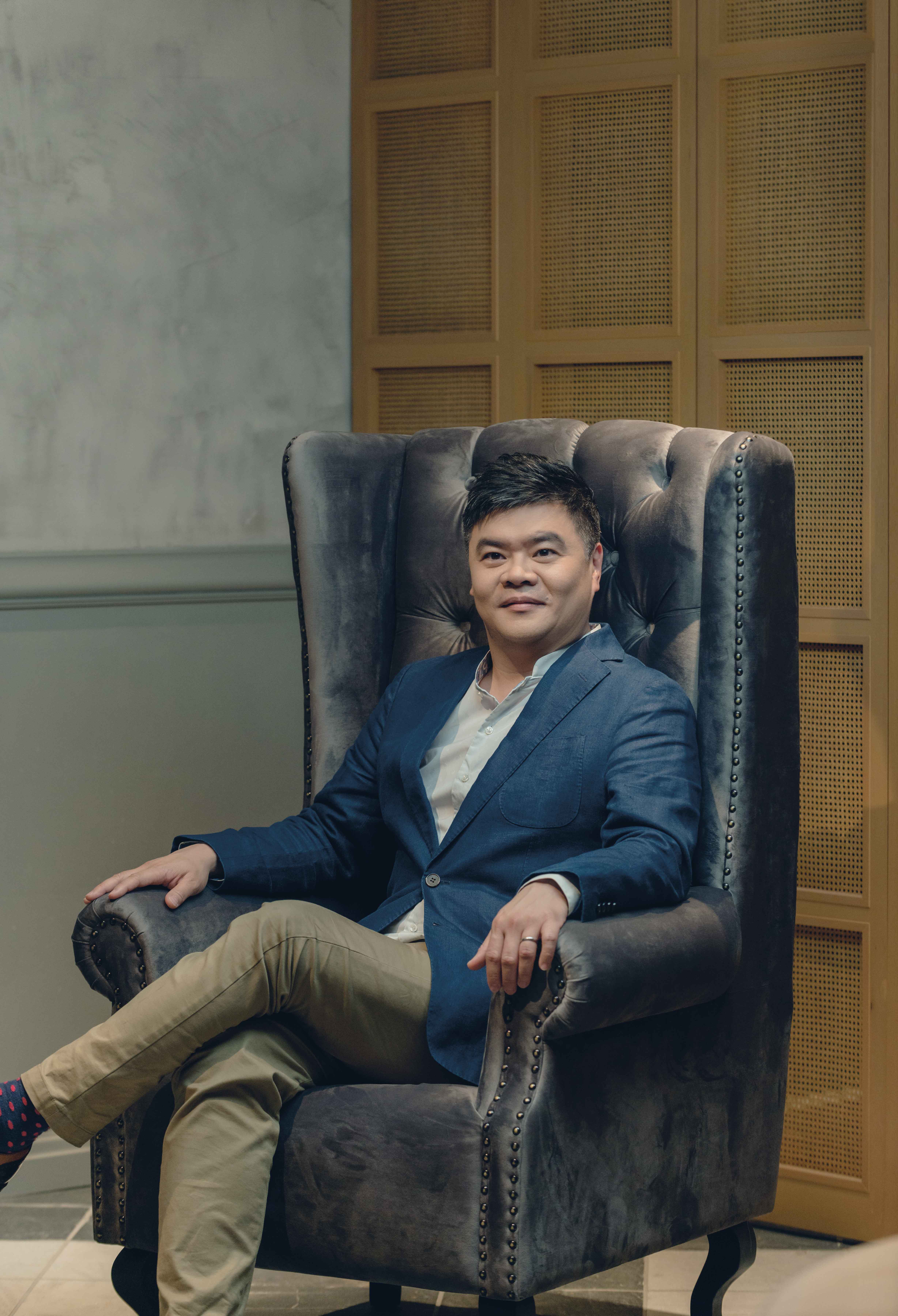
Having initiated a project of that scale, Mr. Loh soon felt the enormity of the endeavor. “Once you take it on, it’s sink or swim,” he recalls. “That instinct is pretty strong, and you start swimming as hard as you can.”
When it comes to heritage buildings that house his businesses, Mr. Loh sees similarities with the vintage items he has added to his growing collection over the years, such as an old Giraffe chair by Arne Jacobsen. “You may only own it for a certain period of time, and you have to pass it to someone else, but the fact that it passed through your hands at some point is always very exciting,” he says.
“It’s the same with hotels: When you restore something like a town hall, a listed property, you’re only a guardian for it for a short period…. Eventually somebody else picks up the mantle, and in the meantime, you don’t want to screw it up, you want to make it better for the next person.”
But he doesn’t dwell on achievements, instead preferring to focus on spending time with his children — Conor, 7, and Cassidy, 3 — and his wife, violinist Min Lee. “The accolades only last for so long, and they’re only relevant to the people who are there with you doing these projects, and at some point they fall away, but if you’re a bad family man, that’s way worse,” he explains.
“I personally feel my greatest reward is spending time with family, so if I leave a good impression on my family, eventually when I die it’s far more important that somebody misses me than that I built some great business. To me, nobody remembers that. Who remembers the railways Rockefeller built or his oil businesses?”
“I'm not in any way motivated by trying to leave some kind of weird legacy, it doesn't bother me. I just want to make sure the businesses are successful when I'm around,” he adds with a laugh.
After nearly 20 years in hospitality and F&B and more than 30 project launches, what does Mr. Loh think of when he reflects on all he’s done? “I have not sat back and looked back over my career, and I think I won't do it for a good many years, because it doesn't feel like it's time for reflection yet,” he replies. “In another 20 or 30 years, maybe I'll want to reflect on it, but for now, it feels like I'm still sprinting, I'm still in the middle of the race, so I don't feel like I should sit back and reflect.
“Never, ever done that. I don't want to.”










 Back
Back
